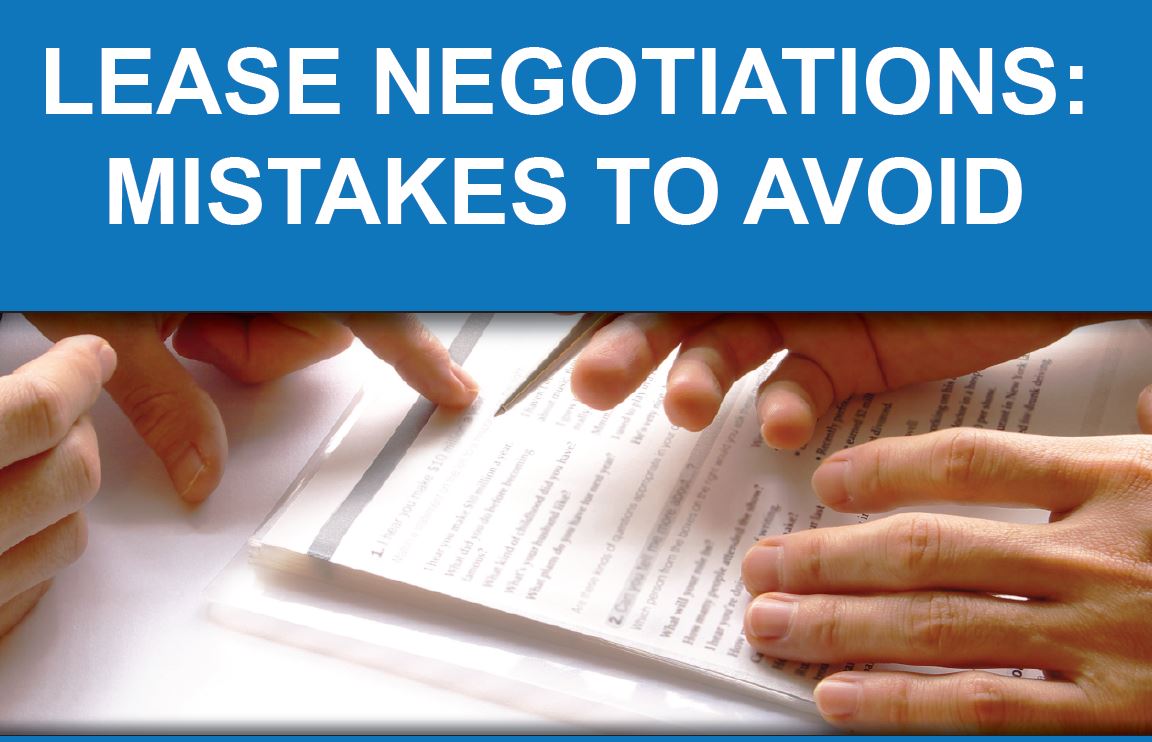Laundry Lease Negotiations: Mistakes to Avoid

Do not underestimate the impact of your laundry lease on your business’ success
When putting together your new self-service laundry business, the laundry lease is one of the most important pieces to the puzzle.
Here are some of the most common pitfalls to avoid when hammering out your next laundry lease:
- Failure to secure exculpation of personal guaranty upon assignment of lease. Let’s say you eventually sell your laundromat for an astonishing amount of money, thanks to your own hard work. However, two years later, you can be sued by the landlord for all of the projected lease term rent, if you fail to get released from a guarantee.
- Failure to secure a non-disturbance agreement from the mortgagee bank. You just bought an expensive store, and your landlord isn’t paying the bank. Guess what? If your landlord is foreclosed upon, your lease is worth nothing – since it crumbles unless you have a non-disturbance agreement, permitting you to pay the rent directly to the bank in the event of a foreclosure.
- Tax stop and construction clause. Your landlord decides to build up – and I mean straight up, right on top of your store. Let’s say your lease states that you will pay 25 percent of taxes as additional rent. The landlord’s improvement puts hundreds of thousands of dollars of rent in his pocket, and your taxes just skyrocketed due to the construction, which increased the taxes and your proportionate share ballooned.
- Water payment. You’re a good tenant, and you pay your water and sewer as additional rent to the landlord. However, let’s say that the landlord isn’t so good and fails to pay for the water. The municipality shuts off the water, and you are out of business. Therefore, pay the water directly to the municipality under the lease, or obtain proof of payment contemporaneously with your payment if it is sent to the landlord. The same principle applies if you sublet space from an over-tenant. Request that you pay the rent directly to the landlord and also request to be notified of any defaults in lease terms that may arise. Failure to do so may result in eviction, if the over-tenant doesn’t pay the rent or comply with the lease terms.
- Dark clause. Where there is a large shopping center and large anchor tenants are in place, request a rent reduction if the center loses said tenants. Losing a major national supermarket chain or other retail establishment can have a huge impact on drawing customers to the center.
- Big mistake. Let’s say you want to save money and so you didn’t use a lawyer –even though you probably wouldn’t think of buying a house or condo without being represented. Spend a few bucks so that you don’t end up discovering that a demolition clause has been buried deep inside the document!
- Even bigger mistake. Failing to have the landlord execute a finance company’s “collateral assignment of lease” document at the time of the laundry lease signing. If you do so afterwards, it may be difficult for the landlord to consent to the terms. They may object and may also charge you a fee for having their attorney review the document. You’ll lose some negotiating leverage after the signing.
Also, here is some fine (or not so fine) print common in laundry leases to be aware of:
- The “pre-printed” fine print is very dangerous. Before computers, you knew what was in a real estate board lease. Today, given the perfection of word processing, you can’t afford not to read the fine print. Review it as if you were reviewing your very first lease.
- No assignment or sublet. This restriction is usually baked into every pre-printed form. Unless the rider modifies that language, you will have a tough time selling the business, as the landlord can hold you hostage to its financial demands.
- Beware the fine print repair clause. A tenant’s repair obligation should be limited to interior, non-structural repairs. Often, fine print hides such costly items such as structural repairs and sidewalk repair and replacement. This is very costly.
In addition, have your attorney do a building department search online to look for any violations. It is not unusual to have buildings with Stop Work orders – which means you are not allowed to build. Also, do a litigation search to be certain that the owner isn’t in foreclosure.
Having the wrong laundry lease can be an absolute nightmare, while the right lease can add great value to your investment.
A version of this post was originally posted on the CLA website. You can view the original post here


